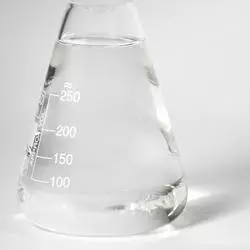IUPAC Name
Ethyl prop-2-enoate
Cas Number
140-88-5
HS Code
2916.12.90
Formula
C5H8O2
Industry
Paint, Ink and Coating
Appearance
Clear Colorless Liquid
Common Names
EA, carboset 511, ethoxycarbonylethylene, ethyl propenoate, ethyl 2-propenoate, 2-propenoic acid ethyl ester
Packaging
200kg/drum
Ethyl acrylate is an acrylate monomer with a molecular formula of C5H8O2. It is a clear and volatile liquid which is slightly soluble in water and completely soluble in alcohols, ethers and almost all organic solvents. It is a very flammable liquid (fire hazard rating 3) with a flashpoint of 9° C and has a sharp acrid odour. It is easily miscible with other organic solvents and is readily polymerized with other monomer molecules to create polymer chains. It is mainly produced for paints, textiles, and non-woven fibers. It is also a reagent in the synthesis of various pharmaceutical intermediates.
Manufacturing Process
Ethyl acrylate can be chemically manufactured using several industrial methods. The most prominent method is to cause a reaction between acrylonitrile and ethanol using sulphuric acid as the catalyst. Additionally, manufacturers may also use phenolic type inhibitors, soluble manganese or cerium salts to aid its production. Alternatively, ethyl acrylate can be produced by acid-catalysed esterification of acrylic acid, which in turn is produced by oxidation of propylene. It may also be prepared from acetylene, carbon monoxide and ethanol by a Reppe reaction.
Ethyl acrylate is primarily used in the production of emulsion-base polymers. Manufacturers produce acrylic resins which can then be used as paints, coatings or latex products. It is mainly used in polyacrylate elastomers, acrylic rubber, textiles, acrylic fibres, leather products and denture materials. It can be used as a coating on most household items such as books, magazines, frozen food packaging, fragrance additive and an adhesive on for envelopes and labels. The primary end user markets are the plastics, leather, paints, packaging, paper and textiles industries.
